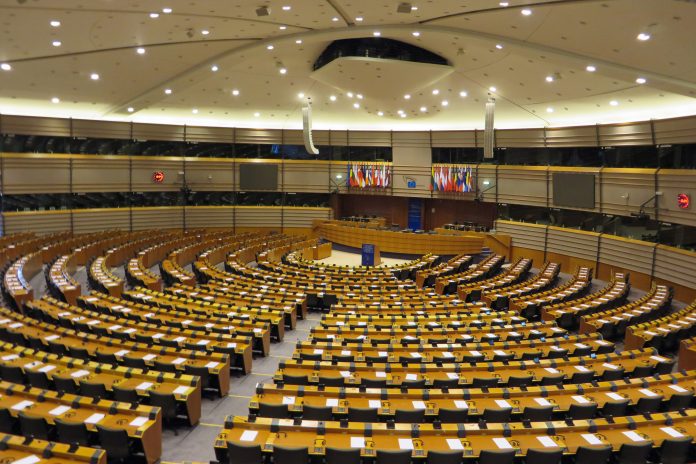The European Parliament will shrink in size when the United Kingdom leaves the European Union – making room for possible pan-European electoral lists.
Besides reducing Parliament’s size from 751 to 705 elected representatives, a proposed re-distribution of seats, approved by the Constitutional Affairs Committee on January 23, would also place 46 of the 73 UK seats to be freed up by Brexit in a reserve.
The 46 seats in the reserve could then be reallocated to new countries joining the EU and/or pan-European electoral lists. The other 27 former UK seats would be distributed among the 14 EU countries that are currently slightly under-represented.
The committee agreed that the number of MEPs elected from an EU-wide electoral constituency in the future should match the number of EU countries, as soon as the completion of the ongoing EU electoral law reform allows it. Sixteen seats would be put in “reserve” in case of a future enlargement.
Introducing such a transnational constituency would strengthen the sense of EU citizenship and the European character of elections to Parliament, say MEPs.
However, completing the electoral law would require a unanimous decision by ministers in the Council of the EU and ratification by all member states.
As for the remaining 27 British seats, the committee said these should be re-distributed among the 14 EU countries that are slightly under-represented, to even out current inequalities in their representation in the House.
“One of the main challenges of this report was on how to deal with the legacy of Brexit,” said Co-rapporteur Danuta Hübner (EPP, PL). “We felt the need to respond to the fact that a big member state is leaving, so we understood the importance of a smaller EP, which is able to continue working for the good of the EU’s citizens. We hope that the new composition of the Parliament will reinvigorate citizen’s participation in the European democratic process.”
According to co-rapporteur Pedro Silva Pereira (S&D, PT), the proposal is a good one. “It assures a fair representation of citizens, it proposes a reasonable and viable political solution.”
As for the European Greens, they issued a statement to welcome the adoption of the proposal. European Greens co-chairs Monica Frassoni and Reinhard Bütikofer said: “We welcome the adoption by the AFCO Committee of the proposal that would allow as many as 46 seats in the European Parliament to be assigned to transnational lists… Having MEPs that depend on a European constituency to be elected enhances the role of the European Parliament as the central unitary institution of the EU and its legitimacy in the European process as the representative of the interests and opinions of European citizens, regardless of their nationality.”
The legislative initiative now needs to be approved by the full House, and then by the European Council before returning to parliament for a final vote scheduled for the February session in Strasbourg.
As noted by Deutsche Welle (DW) in a separate report, the largest contingent of British MEPs belongs to UKIP, the party once synonymous with Nigel Farage.

